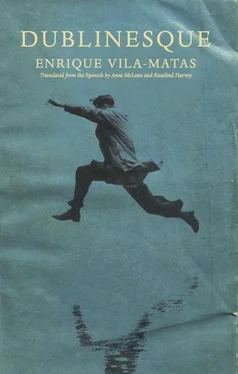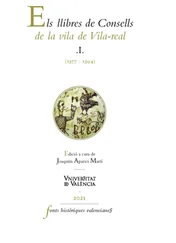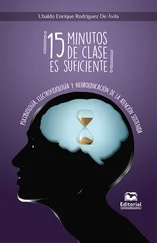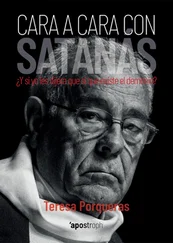“My God! Why have you started drinking again?” said Celia.
A strange moment, as if there were a hidden sign bearing some message in their pathetic crying and the surprising fact that Celia’s question was identical to the one in the dream.
Then, a partly logical reaction, he sat waiting for Celia to continue acting with great fidelity to the scene in the prophetic dream and to say:
“Tomorrow we could go to Cork.”
But Celia didn’t go so far as to say that. In contrast, the word “Cork,” the great absentee, strolled onto the stage, but as if completely suspended in the air, as if it were floating there in order to reappear perhaps later on, in an even more terrifying situation. In the shape of that vase at home in Barcelona, for example.
Riba seemed to understand fully at that moment that the fundamental essence of that strange dream he’d had in the hospital two years ago was simply regaining the awareness and the joy of being alive.
Celia did not say they could go to Cork the next day, but that didn’t make the moment any less strange, unique, any less a moment at the center of the world. Because he suddenly felt that he was linked to his wife beyond everything, beyond life, and beyond death. And that feeling was so serious in its most profound truth, it was so intense and so intimate, that he could only relate it to a possible second birth.
She, however, didn’t really share these feelings, was merely indignant about his ill-fated fall off the wagon. Even so, in the scene of the mortal embrace there was also emotion on Celia’s part and he saw that she too — although not to the same extent as he did — she appreciated the unexpected intensity of this unique moment at the center of the world.
“When the dead cry it’s a sign that they’re beginning to get better and to recover the awareness of being alive,” he said.
“When the dead cry it’s because they’ve drunk themselves to death on whiskey,” answered Celia, perhaps more realistically.
He took a while to respond.
“What a shame,” he said, “that we die, and get old, and everything good goes galloping away from us.”
“That we get old and die,” she corrected him.
And so the spell of the moment was gradually broken.
But the moment had occurred. It was, in fact, an instant at the center of the world. Although there was nothing at all central about the moment that followed, the one in which she gave him a terrible look and their lives returned to an ordinary state. Now she wouldn’t stop looking at him, with hatred once again. But mostly with contempt.
And what did he do? Was he able to look at her with contempt? Was he able to tell her she was a simpleton because she’d become a Buddhist? No, he couldn’t, and didn’t dare. He was still under the effects, the echoes of the great emotion he’d experienced. He heard the deep murmur of the Irish Sea and some words that told him it would always be better to be held in contempt by everyone than to be held on high. Because if one settled into the worst position, the lowest, and most forgotten by fortune, one could always still hope and not live in fear. Now he understood why he’d had to situate himself at ground level to manage to have some sense of survival. It didn’t matter that he’d grown old and been ruined and was at the end of everything because, after all, this drama had been useful in helping him understand why — within the so well-known incompetence of man in general and the no less famous incompetence of his time on this earth — there still existed a few privileged moments that one must be able to capture. And that had been one of them. And what’s more, he’d already experienced it in a dream of almost incomparable emotion, two years ago in the hospital. That was one of those precious moments he’d surely been fighting for, unknowingly, over the past few months.
Hugging Celia, he imagined right then and there, for a few moments, and very much in spite of their uncomfortable position on the ground, that just like other times he was wandering the streets of the world alone, and all at once found himself at the end of a pier swept by a storm, and there everything fell back into place: years of doubt, searching, questions, and failures suddenly made sense, and the vision of what was best for him asserted itself like a great fact; it was clear he didn’t have to do anything, except go back to his rocking chair, and begin there a discreet existence, worstward ho.
“The lamentable change is from the best.” He remembered, then and there, Edgar, the Earl of Gloucester’s son in King Lear , saying, that it always happens to us when we’re settled into the best. “The worst returns to laughter. Welcome, then, thou insubstantial air that I embrace! The wretch that thou hast blown unto the worst owes nothing to thy blasts.”
Now he is in the worst way, but something’s not working because the worst is not returning him to laughter. He’s paid a high price for his nocturnal epiphany on the final pier and nevertheless nothing is as he expected it to be. Without realizing, he has settled into the worst of the worst, a lower stratum than anticipated. His hangover is not abating. And the small Hopper painting will not look any different for love nor money.
With horror he’s beginning to see the first consequences of his mistake. To begin with, he’s clearly sensing that both God and the genius he always sought have died. To put it another way, without having given his consent, he sees himself now settled in a deplorable pigsty within a repugnant world.
They are all gone, as Henry Vaughan said. “They are all gone into the world of light,” is how the first line of that seventeenth-century English poem actually reads. But from the pigsty he’s holed up in now, worstward ho, that illuminated kingdom is not exactly visible. And this is undoubtedly one of the great disadvantages of the hovel the apartment has finally turned into. So Henry Vaughan’s line is reduced to a foul and miserable: “They are all gone.” End of story.
The nostalgia for the lost or never found genius returns. There was a time, while devoting himself to searching one out, that he took it for granted that one obvious sign of the presence of that genius in a piece of writing, or in an action written in life, would be the ability to choose themes far removed from one’s own circumstances. Until not long ago, Riba had always imagined that genius busying himself with his daily life as a retired publisher, a life that would be precisely quite far removed from the life of that novice. Until not a moment ago, he had the impression that for a novel to have genius, it was essential that throughout, a superior spirit, more intuitive and more intimately aware than the characters themselves, should be placing the whole of the story under the gaze of future readers; this, without participating in its passions, motivated only by the agreeable excitement produced by the energetic approval of one’s spirit to expose what one has been so attentively contemplating.
Whether or not it’s a coincidence, the fact is, since he’s given up Malachy Moore for dead, he doesn’t sense that the person who’s been lying in wait for him so fervently is still there, the one who has been observing him with maniacal, perhaps professional interest. Nostalgia for the genius. Or for the absentee. Nostalgia even for the novice. The truth is that, more or less as Henry Vaughan was saying, they are all gone. They have all vanished, and perhaps for a long time, maybe forever. He remembers the youngsters who made fun of Cavalcanti because he never wanted to go on a bender with them. “You refuse to be of our company. But when you’ve proved there is no God, then what will you do?”
The rain falls, as if trying to flood the entire earth at last, including this house in north Dublin, this almost tragic house with a rocking chair and a big window and a painting of a stairway, in front of the Irish Sea, this house so well appointed for going worstward ho, and if I may be allowed to say so — forgive the interruption, I do need to distance myself somewhat, but if I don’t say it I’ll burst out laughing — so completely lined with Beckett.
Читать дальше












